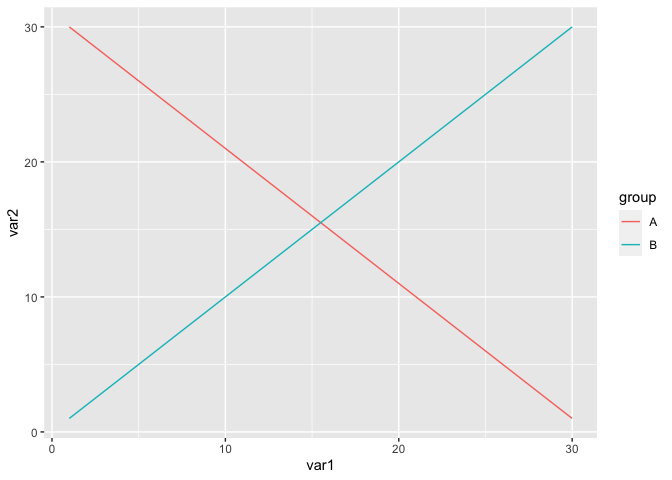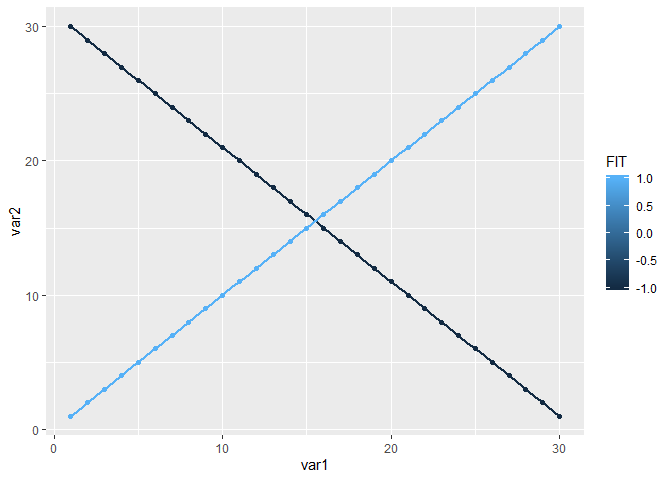Hi, and welcome!
Please see the FAQ: What's a reproducible example (`reprex`) and how do I create one? Using a reprex, complete with representative data will attract quicker and more answers. You've done the equivalent here, but with more involved data it's a great way to catch syntax errors.
As a preface, data is a function name. I like to avoid using it as the name of a user created object. When in doubt, just
data
#> function (..., list = character(), package = NULL, lib.loc = NULL,
#> verbose = getOption("verbose"), envir = .GlobalEnv, overwrite = TRUE)
#> {
#> fileExt <- function(x) {
#> db <- grepl("\\.[^.]+\\.(gz|bz2|xz)$", x)
#> ans <- sub(".*\\.", "", x)
#> ans[db] <- sub(".*\\.([^.]+\\.)(gz|bz2|xz)$", "\\1\\2",
#> x[db])
#> ans
#> }
#> names <- c(as.character(substitute(list(...))[-1L]), list)
#> if (!is.null(package)) {
#> if (!is.character(package))
#> stop("'package' must be a character string or NULL")
#> if (any(package %in% "base"))
#> warning("datasets have been moved from package 'base' to package 'datasets'")
#> if (any(package %in% "stats"))
#> warning("datasets have been moved from package 'stats' to package 'datasets'")
#> package[package %in% c("base", "stats")] <- "datasets"
#> }
#> paths <- find.package(package, lib.loc, verbose = verbose)
#> if (is.null(lib.loc))
#> paths <- c(path.package(package, TRUE), if (!length(package)) getwd(),
#> paths)
#> paths <- unique(normalizePath(paths[file.exists(paths)]))
#> paths <- paths[dir.exists(file.path(paths, "data"))]
#> dataExts <- tools:::.make_file_exts("data")
#> if (length(names) == 0L) {
#> db <- matrix(character(), nrow = 0L, ncol = 4L)
#> for (path in paths) {
#> entries <- NULL
#> packageName <- if (file_test("-f", file.path(path,
#> "DESCRIPTION")))
#> basename(path)
#> else "."
#> if (file_test("-f", INDEX <- file.path(path, "Meta",
#> "data.rds"))) {
#> entries <- readRDS(INDEX)
#> }
#> else {
#> dataDir <- file.path(path, "data")
#> entries <- tools::list_files_with_type(dataDir,
#> "data")
#> if (length(entries)) {
#> entries <- unique(tools::file_path_sans_ext(basename(entries)))
#> entries <- cbind(entries, "")
#> }
#> }
#> if (NROW(entries)) {
#> if (is.matrix(entries) && ncol(entries) == 2L)
#> db <- rbind(db, cbind(packageName, dirname(path),
#> entries))
#> else warning(gettextf("data index for package %s is invalid and will be ignored",
#> sQuote(packageName)), domain = NA, call. = FALSE)
#> }
#> }
#> colnames(db) <- c("Package", "LibPath", "Item", "Title")
#> footer <- if (missing(package))
#> paste0("Use ", sQuote(paste("data(package =", ".packages(all.available = TRUE))")),
#> "\n", "to list the data sets in all *available* packages.")
#> else NULL
#> y <- list(title = "Data sets", header = NULL, results = db,
#> footer = footer)
#> class(y) <- "packageIQR"
#> return(y)
#> }
#> paths <- file.path(paths, "data")
#> for (name in names) {
#> found <- FALSE
#> for (p in paths) {
#> tmp_env <- if (overwrite)
#> envir
#> else new.env()
#> if (file_test("-f", file.path(p, "Rdata.rds"))) {
#> rds <- readRDS(file.path(p, "Rdata.rds"))
#> if (name %in% names(rds)) {
#> found <- TRUE
#> if (verbose)
#> message(sprintf("name=%s:\t found in Rdata.rds",
#> name), domain = NA)
#> thispkg <- sub(".*/([^/]*)/data$", "\\1", p)
#> thispkg <- sub("_.*$", "", thispkg)
#> thispkg <- paste0("package:", thispkg)
#> objs <- rds[[name]]
#> lazyLoad(file.path(p, "Rdata"), envir = tmp_env,
#> filter = function(x) x %in% objs)
#> break
#> }
#> else if (verbose)
#> message(sprintf("name=%s:\t NOT found in names() of Rdata.rds, i.e.,\n\t%s\n",
#> name, paste(names(rds), collapse = ",")),
#> domain = NA)
#> }
#> if (file_test("-f", file.path(p, "Rdata.zip"))) {
#> warning("zipped data found for package ", sQuote(basename(dirname(p))),
#> ".\nThat is defunct, so please re-install the package.",
#> domain = NA)
#> if (file_test("-f", fp <- file.path(p, "filelist")))
#> files <- file.path(p, scan(fp, what = "", quiet = TRUE))
#> else {
#> warning(gettextf("file 'filelist' is missing for directory %s",
#> sQuote(p)), domain = NA)
#> next
#> }
#> }
#> else {
#> files <- list.files(p, full.names = TRUE)
#> }
#> files <- files[grep(name, files, fixed = TRUE)]
#> if (length(files) > 1L) {
#> o <- match(fileExt(files), dataExts, nomatch = 100L)
#> paths0 <- dirname(files)
#> paths0 <- factor(paths0, levels = unique(paths0))
#> files <- files[order(paths0, o)]
#> }
#> if (length(files)) {
#> for (file in files) {
#> if (verbose)
#> message("name=", name, ":\t file= ...", .Platform$file.sep,
#> basename(file), "::\t", appendLF = FALSE,
#> domain = NA)
#> ext <- fileExt(file)
#> if (basename(file) != paste0(name, ".", ext))
#> found <- FALSE
#> else {
#> found <- TRUE
#> zfile <- file
#> zipname <- file.path(dirname(file), "Rdata.zip")
#> if (file.exists(zipname)) {
#> Rdatadir <- tempfile("Rdata")
#> dir.create(Rdatadir, showWarnings = FALSE)
#> topic <- basename(file)
#> rc <- .External(C_unzip, zipname, topic,
#> Rdatadir, FALSE, TRUE, FALSE, FALSE)
#> if (rc == 0L)
#> zfile <- file.path(Rdatadir, topic)
#> }
#> if (zfile != file)
#> on.exit(unlink(zfile))
#> switch(ext, R = , r = {
#> library("utils")
#> sys.source(zfile, chdir = TRUE, envir = tmp_env)
#> }, RData = , rdata = , rda = load(zfile,
#> envir = tmp_env), TXT = , txt = , tab = ,
#> tab.gz = , tab.bz2 = , tab.xz = , txt.gz = ,
#> txt.bz2 = , txt.xz = assign(name, read.table(zfile,
#> header = TRUE, as.is = FALSE), envir = tmp_env),
#> CSV = , csv = , csv.gz = , csv.bz2 = ,
#> csv.xz = assign(name, read.table(zfile,
#> header = TRUE, sep = ";", as.is = FALSE),
#> envir = tmp_env), found <- FALSE)
#> }
#> if (found)
#> break
#> }
#> if (verbose)
#> message(if (!found)
#> "*NOT* ", "found", domain = NA)
#> }
#> if (found)
#> break
#> }
#> if (!found) {
#> warning(gettextf("data set %s not found", sQuote(name)),
#> domain = NA)
#> }
#> else if (!overwrite) {
#> for (o in ls(envir = tmp_env, all.names = TRUE)) {
#> if (exists(o, envir = envir, inherits = FALSE))
#> warning(gettextf("an object named %s already exists and will not be overwritten",
#> sQuote(o)))
#> else assign(o, get(o, envir = tmp_env, inherits = FALSE),
#> envir = envir)
#> }
#> rm(tmp_env)
#> }
#> }
#> invisible(names)
#> }
#> <bytecode: 0x7faa96e96398>
#> <environment: namespace:utils>
Created on 2020-03-22 by the reprex package (v0.3.0)
for any name you're thinking of using. You can also do things like data_.
suppressPackageStartupMessages(library(ggplot2))
# the sample data
dat_ <-data.frame(var1 = c(rep(seq(1,30),2)),
var2= c(seq(30,1),seq(1,30)),
group=c(rep("A",30),rep("B",30)))
# create the base layer
p <- ggplot(dat_,aes(var1,var2, colour = group))
# add lines
p + geom_line()

Created on 2020-03-22 by the reprex package (v0.3.0)

